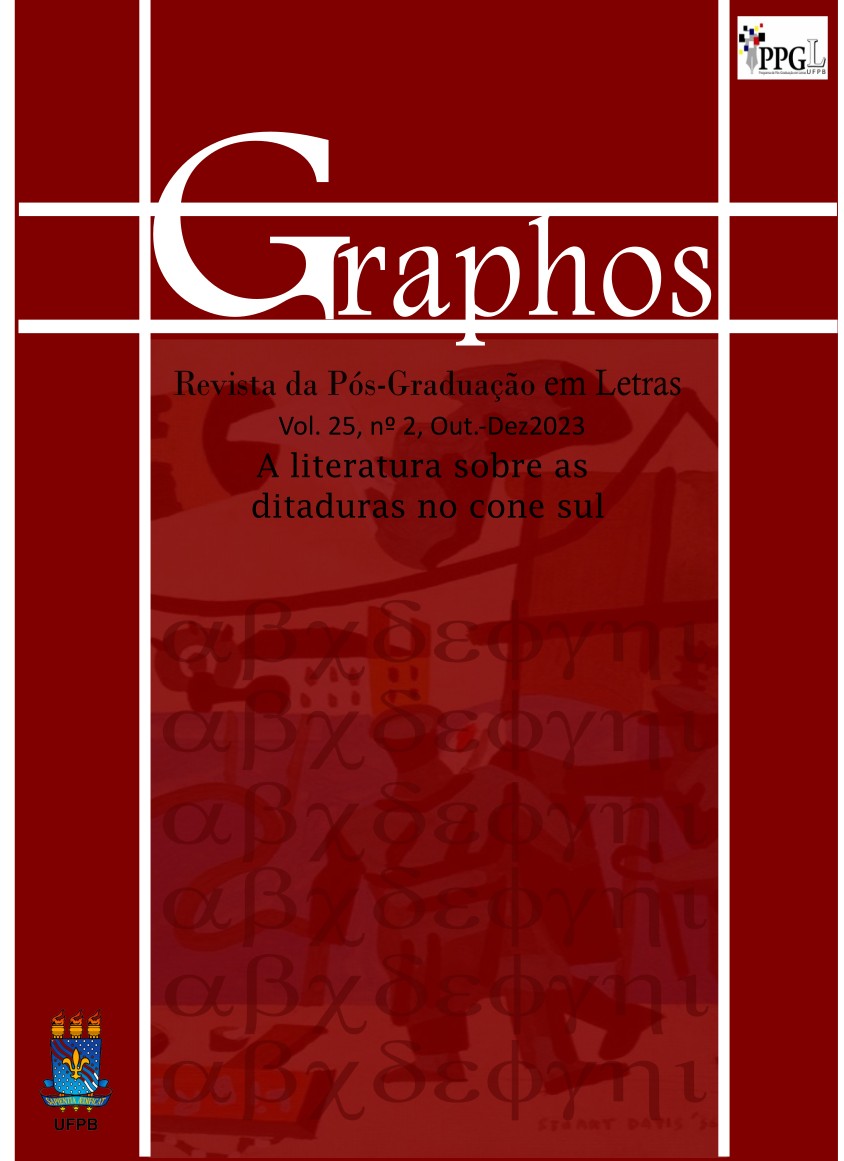ROBERTO ANTUNES? I’M HERE! THE FIGHT FOR THE RIGHT TO GRIEVE IN “O VELÓRIO”, BY BERNARDO KUCINSKI
DOI:
https://doi.org/10.22478/ufpb.1516-1536.2023v25n2.66434Keywords:
Bernardo Kucinski; literature of testimony; Brazilian civil-military dictatorship; memory; grief.Abstract
Along with many other violations of elementary human rights, one of the worst forms of violence performed by the state during Brazilian civil-military dictatorship (1964-1985) was denying the victims of enforced disappearance’s relatives the right to grieve their beloved ones, so that parents, husbands and wives could never properly give funeral, honor and bury their missing children or life partners. Such violence is highlighted in “O velório”, by Bernardo Kucinski (2014). By suggesting some thematic connections with Kucinski’s novel K.: relato de uma busca and presenting theoretical and critical fortune by Jaime Ginzburg and Maria Zilda Ferreira Cury, we aim to demonstrate that this short story – just like Kucinski’s testimonial work as a whole – is fundamentally a sort of literature that opposes resistance to the oblivion policy performed by Brazilian state, since the author, through a literary way, not only denounces the murder of the authoritarian regime’s dissidents but also the interdiction of their relatives’ right to grieve their loss. Besides denouncing the deprivation of the right to grief, to life and to physical integrity, “O velório” can be read as a loud alarm towards the risk of re-edition today, in contemporary Brazil, of authoritarian measures held by state in a very recent moment in national history which was never truly and entirely faced by Brazilian people as a nation – an alarm that has been proved to be urgent and inescapable and that can no longer be ignored considering the current political situation in the greatest South American country.
Downloads
References
CURY, Maria Zilda Ferreira. Non habeas corpus: direito ao corpo na ficção de Bernardo Kucinski. In: GOMES, Gínia Maria (Org.). Narrativas brasileiras contemporâneas: memórias da repressão. Porto Alegre: Editora Polifonia, 2020.
GAGNEBIN, Jeanne-Marie. O preço de uma reconciliação extorquida. In: TELES, Edson; SAFATLE, Vladimir (Org.). O que resta da ditadura: a exceção brasileira. São Paulo: Boitempo, 2010.
GINZBURG, Jaime. Memória e ritual em “O velório”, de Bernardo Kucinski. In: OLIVEIRA, Rejane Pivetta de.; THOMAZ, Paulo C. (Org.). Literatura e ditadura. Porto Alegre: Zouk, 2020.
KEHL, Maria Rita. Tortura e sintoma social. In: TELES, Edson; SAFATLE, Vladimir. (Org.). O que resta da ditadura: a exceção brasileira. São Paulo: Boitempo, 2010.
KUCINSKI, Bernardo. K.: relato de uma busca. São Paulo: Cosac Naify, 2014.
KUCINSKI, Bernardo. O velório. In: KUCINSKI, BERNARDO. Você vai voltar pra mim. São Paulo: Cosac Naify, 2014.
Downloads
Published
Issue
Section
License
Copyright (c) 2023 Vitor Bourguignon Vogas, Fabíola Simão Padilha Trefzger

This work is licensed under a Creative Commons Attribution 4.0 International License.







